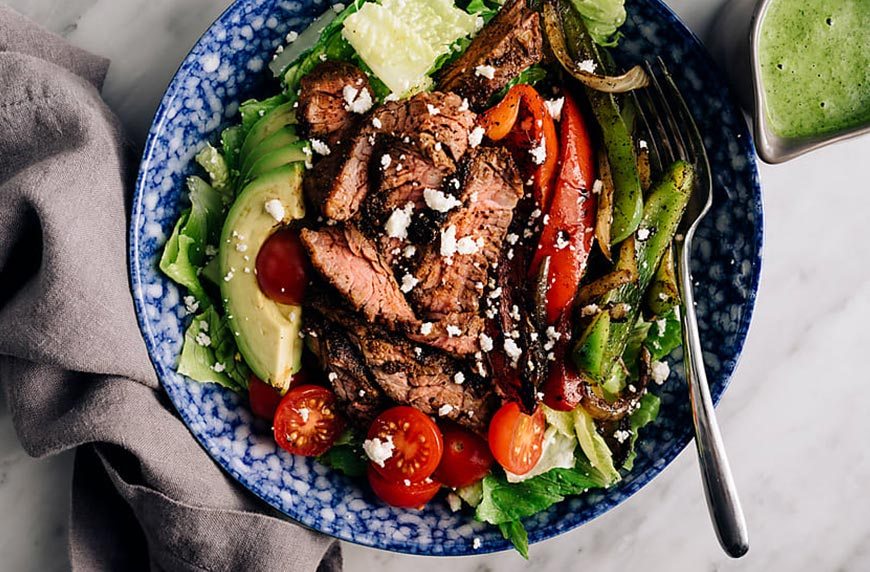How to Practice Healthy Portion Control When Mindful Eating Doesn’t Work for You
"Ugghhh," one editor let out a groan when a link to the article was shared on Slack. "Mindful eating just doesn't work for me, and I'm sick of being told it's the only way to eat healthier." She wasn't the only one.
"It's funny, that study was shared in a Facebook group with my clients and it sparked a really interesting discussion," weight loss and confidence coach Tracy Campoli tells me. "Clients tell me all the time that they don't know how to do portion control and it doesn't matter what they 'tell' themselves." Clearly, a chord was struck.
After all, like with many other wellness habits, portion control can be part of a healthy routine—or it can be a slippery slope leading to disordered eating. "I'm against anything with a 'diet' mindset, like using a scale to weigh out your food," Campoli says. She points out that eating should be pleasurable, not a pain point. And if you're becoming preoccupied with food restriction, that's a sign of a destructive thought pattern.
Eating should be pleasurable, not a pain point. And if you're becoming preoccupied with food restriction, that's a sign of a destructive thought pattern.
The real question isn't what to tell yourself before eating or how to be restrictive, it's how to make each meal as enjoyable as possible without stuffing yourself so full you end up ill. How do you eat healthy portions when mindful eating just doesn't work for you?

{{post.sponsorText}}
Campoli and personal trainer and life coach Jen Gottlieb, who I also asked to weigh in on the topic, both have a whole slew of tips, none of which rely on restriction. The first: Eat delicious freaking food, damn it! "When you think about how people eat in Europe, they aren't counting carbs or not having chocolate, but everything they eat is good quality so they savor it," Campoli says. "Think about going to your favorite restaurant: You aren't going to shovel your favorite dish into your mouth. You're going to enjoy each bite!"
If that's still a bit too abstract for you, Gottlieb offers up this suggestion: Set your fork down between bites. "It may sound annoying, but it really does help," she says, because it takes the body a full 20 minutes to feel full. "You'll eat slower and actually chew your food more, which in turn makes your food easier to digest and then you're less likely to get a stomachache." And when you feel satiated, rather than stuffed, "it also activates the vagus nerve, relaxing the body," Campoli says. Which feels a heckuva lot better than a bloated belly.

Gottlieb also tells her clients to set their plate up for success by filling it with half veggies and rounding out the other half with a mix of protein, healthy fats, and complex carbs. Once your plate is divided in a smart way, you can eat without giving each bite so much thought. "You can't really overeat veggies," Gottlieb says. That's the beauty of nutrient-dense foods. You don't have to be as "mindful" about a plate of spiralized zucchini noodles as you would pasta.
"I work from home and I often find myself looking in the fridge whenever I feel bored or am procrastinating," Gottlieb says, highlighting another common health-eating roadblock. "What I do is set a timer for 20 minutes. Then, I make myself some tea and do something else, like check my email. If in 20 minutes I still want the snack, I have it. But usually I'm distracted by then and don't even want it anymore."

Maybe you aren't a big snacker. Maybe it's eating out that makes your best healthy eating intentions fly out the window. Campoli's advice: Don't arrive starving. "If you eat lunch at noon and your dinner reservation isn't until 8 p.m., of course you're going to devour the bread basket," she says. "Have a snack first. It's okay!"
What's important to remember is that portion control isn't about restriction or rules; it's about eating in a way that makes you happy, which as you can see, isn't actually about eating as much as you can. You don't have to "meditate" over each bite or repeat a pre-meal mantra about how your food will benefit your body. It's about giving your body what it needs to feel good—and enjoying every forkful, no matter how many you take.
If you're looking for nutrient dense food options, check out this list. Plus, 10 foods dietitians wish everyone ate more of.
Loading More Posts...